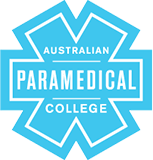
This role has a low level of AI exposure. Core skills such as adaptability, social intelligence, and complex physical tasks remain beyond the capabilities of current AI.
Explore all careersDisability Support Workers provide hands-on assistance to aged and disabled clients, helping with daily tasks, companionship, and community engagement.
Get qualified to work as a Disability Support Worker with a course recognised across Australia. Speak to a training provider to learn more.








In Australia, a full time disability support worker generally earns $1,500 per week ($78,000 annual salary) before tax. This is a median figure for full-time employees and should be considered a guide only. As you gain more experience you can expect a potentially higher salary than people who are new to the industry.
 Courses.com.au Team
Courses.com.au Team
Aged and disability support worker jobs have grown strongly in recent times and are expected to continue to do so. As of May 2019, there were approximately 177,000 aged and disabled carer jobs in Australia. Within five years, that number could potentially jump up to 222,000. Some reports indicate the possibility of about 35,800 job openings per year for the next five years.
Source: The Labour Market Information Portal - 2019 Occupational Projections and Australian Government Job Outlook
 Courses.com.au Team
Courses.com.au Team
Although different positions and roles have different requirements, many disability support workers need a qualification in individual support to secure a job. A Certificate III in Individual Support can take 6-12 months to complete and usually requires 120 hours of work placement. Another option is a Certificate III in Individual Support with a specialisation in Aged and Disability Support. This can also take 6-12 months to complete and has a 120-hour work placement component. The exact duration of these learning pathways depends on several factors, including whether you opt for online, on campus or blended study modes and if you study full or part time.
 Courses.com.au Team
Courses.com.au Team
Browse occupations related to Disability Support Worker



Exploring Disability Support Worker courses in New South Wales is an excellent way to jump-start your career in the thriving community services sector. With a total of 50 courses available, ranging from beginner to advanced levels, there are plenty of opportunities designed to equip you with the necessary skills to support individuals with disabilities. Whether you are looking to begin your journey with a Certificate III in Individual Support (Disability) or aim for an advanced qualification like the Certificate IV in Disability Support, you'll find suitable options in the Newcastle, Central Coast, and Sydney areas.
For those who are new to the field, beginner courses such as the Certificate III in Individual Support (Ageing and Disability) or the Provide First Aid HLTAID011 are popular starting points. Training providers such as SMIC and Greenwich College are well-regarded in the region, ensuring you receive quality education to prepare you for a rewarding role in support work.
As you progress in your studies, you may become interested in roles such as Community Care Worker or Disability Service Officer. The skills gained from completing your Certificate IV in Health Care or the Advanced Diploma of Nursing (Aged Care and Individual Support Work) will serve you well in these important roles. The demand for qualified professionals continues to grow in regional and metropolitan areas, offering a wealth of job opportunities.
The diversity of courses, such as the Course in Introduction to the National Disability Insurance Scheme, allows individuals to learn more about current government initiatives and frameworks. This knowledge is essential for those pursuing a career where they assist clients in navigating various services and support systems. Providers like Red Cross and Oz Care Training include such valuable courses in their offerings.
By undertaking Disability Support Worker courses in New South Wales, students are entering a field ripe with potential to make lasting impacts on the lives of others. With guidance from reputable training institutions, you can build a fulfilling career in community services. Consider exploring various pathways like becoming a Personal Carer or aiming for leadership positions like Disability Team Leader to further your impact in the sector. The opportunities are endless, and your journey starts with the right education!